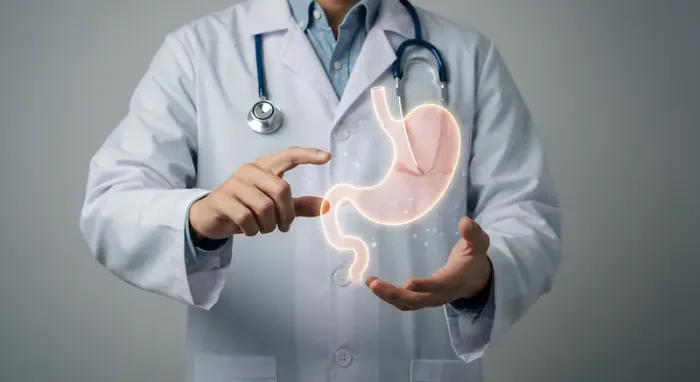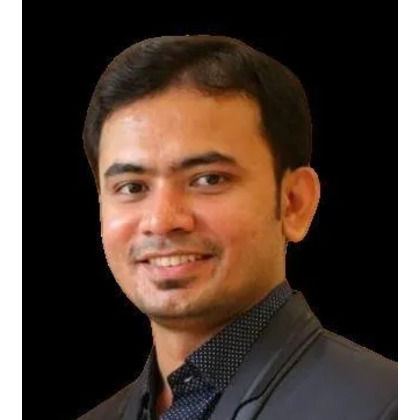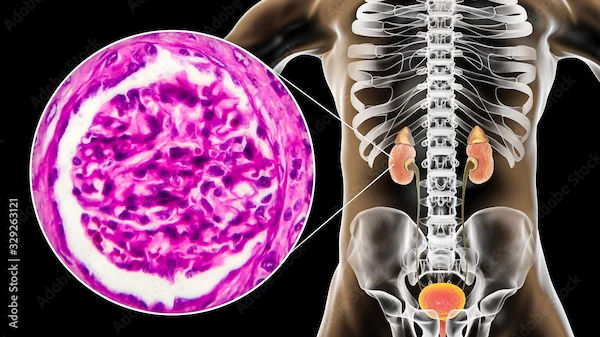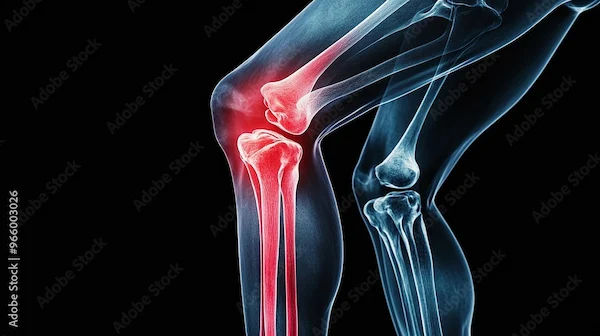Guide to Category/surgical Gastroenterology
Learn when to consult a surgical gastroenterologist, understand common gastrointestinal conditions requiring surgery, and explore treatment options.

Written by Dr. Dhankecha Mayank Dineshbhai
Reviewed by Dr. Shaik Abdul Kalam MD (Physician)
Last updated on 13th Jan, 2026

Introduction
When you experience persistent digestive issues, severe abdominal pain, chronic heartburn, or unexplained changes in bowel habits, it can be unsettling. You might first see a general physician or a gastroenterologist. But when a condition requires an operation, you enter the specialised realm of surgical gastroenterology. This field combines deep knowledge of the digestive system with expert surgical skill to treat a wide range of diseases, from gallstones to cancer. This guide will demystify this medical specialty, explain the common conditions and procedures, and walk you through what to expect if you or a loved one needs surgical care. Our goal is to empower you with knowledge, so you can approach your health decisions with confidence.
Understanding the Digestive System: A Quick Refresher
Before diving into the surgeries, it's helpful to understand the landscape. Your digestive system is a complex tube starting at your mouth and ending at the rectum. Along the way, it includes the oesophagus, stomach, small intestine, large intestine (colon), liver, gallbladder, and pancreas. Its job is to break down food, absorb nutrients, and expel waste. A problem in any of these organs can cause significant distress. A surgical gastroenterologist is a specialist who has trained extensively in both the medical and surgical management of diseases affecting this entire system. They are distinct from a medical gastroenterologist, who primarily uses non-surgical methods like medications and endoscopies for treatment.
Common Conditions Treated by a Surgical Gastroenterologist
These specialists are like the architects and engineers of the digestive tract, fixing structural problems that cannot be resolved with medication alone. The conditions they treat are broadly categorised below.
Gastrointestinal Cancers
This is a primary focus area. Surgical gastroenterologists, often working as GI oncologists, perform surgeries to remove cancers of the oesophagus, stomach, liver, pancreas, gallbladder, small intestine, colon, and rectum. The goal of surgery is often curative, aiming to remove the entire tumour, or palliative, to relieve symptoms like blockages. Early detection is critical for the success of these procedures.
Benign Conditions of the Upper GI Tract
Not all problems are cancerous. Many common issues require surgical expertise:
- Severe GORD (Gastro-oesophageal Reflux Disease): When medication fails, a procedure called fundoplication can strengthen the valve between the oesophagus and stomach.
- Hiatal Hernia: A condition where part of the stomach pushes into the chest cavity, often repaired surgically if it causes
severe symptoms. - Achalasia: A disorder where the oesophagus fails to move food into the stomach, which can be treated with a surgery called Heller myotomy.
Benign Conditions of the Lower GI Tract
- Appendicitis: The inflammation of the appendix, almost always requiring emergency surgical removal (appendectomy).
- Diverticulitis: Infection or inflammation of small pouches in the colon wall. Severe or recurrent cases may require a colectomy (removal of part of the colon).
- Inflammatory Bowel Disease (IBD): For cases of Crohn's disease or Ulcerative Colitis that don't respond to medication,
surgery can remove damaged sections of the intestine. - Rectal Prolapse & Haemorrhoids: These common issues can often be addressed with outpatient surgical procedures.
Consult a Surgical Gastroenterologist for the best advice
Surgical Procedures: From Minimally Invasive to Complex Surgeries
The image of surgery has changed dramatically. Today, the focus is on precision and minimal disruption to the body.
Laparoscopic Surgery: The Power of Small Incisions
This is the cornerstone of modern surgical gastroenterology. Instead of one large incision, the surgeon makes several small keyhole incisions. A tiny camera (laparoscope) is inserted, projecting images onto a monitor, and specialised instruments are used to perform the operation. Benefits include less pain, smaller scars, reduced risk of infection, and a much faster recovery. Common laparoscopic procedures include gallbladder removal (cholecystectomy), appendectomy, and hernia repairs.
Hepatobiliary and Pancreatic Surgeries
These are among the most complex procedures. They include:
- Cholecystectomy: Removal of the gallbladder, a very common procedure for gallstone treatment.
- Liver Resection: Removal of a portion of the liver, often for tumours.
- Whipple Procedure: A complex operation for pancreatic cancer, involving the removal of the head of the pancreas, part
of the small intestine, the gallbladder, and the bile duct.
The Robotic Revolution in Abdominal Surgery
Taking minimally invasive surgery a step further, robotic-assisted systems (like the da Vinci® system) provide surgeons with enhanced precision, flexibility, and control. The surgeon operates from a console, guiding robotic arms that mimic their hand movements with greater range of motion. This is particularly beneficial for complex procedures in confined spaces, such as rectal cancer surgery or prostatectomy, leading to potentially better outcomes and preserving organ function. If your condition requires a complex procedure, ask your surgeon if a robotic-assisted approach is suitable for you.
What to Expect: Your Journey from Consultation to Recovery
Knowing what lies ahead can alleviate anxiety. Your journey will typically follow these stages.
The Initial Consultation: Key Questions to Ask
This is your opportunity to understand your diagnosis and treatment options. Come prepared. Ask:
- What is the exact diagnosis?
- What are all my treatment options, surgical and non-surgical?
- Why do you recommend this specific procedure?
- How many times have you performed this surgery?
- What are the potential risks and benefits?
- What does the recovery process look like?
The Recovery Process and Post-Op Care
Recovery varies by procedure. For recovery after laparoscopic gallbladder surgery, you might go home the same day and resume light activities in a week. For a major resection, hospitalisation and recovery will be longer. Your care team will guide you on pain management, wound care, dietary changes, and gradually increasing activity. Adhering to these instructions is vital for a smooth recovery. Apollo24|7 offers convenient home collection for tests like CBC or liver function tests that might be needed during your recovery phase.
Get Your Health Assessed
Conclusion: Taking the Next Step with Confidence
Facing the possibility of surgery on your digestive system can be daunting. However, understanding the expertise of a surgical gastroenterologist and the advanced, patient-friendly techniques available today can transform fear into confidence. This field is dedicated not just to treating disease, but to restoring your quality of life. By being an informed participant in your healthcare, asking the right questions, understanding the procedures, and following through with recovery, you actively contribute to your own well-being. If you have been struggling with a digestive condition, take the next step.
Consult a Surgical Gastroenterologist for the best advice
Consult a Surgical Gastroenterologist for the best advice

Dr. E. Selvakumar
Surgical Gastroenterologist
23 Years • MBBS, MS Mch
Chennai
Apollo Hospitals Tondiarpet, Chennai

Dr. Sunil Kaul
General Surgeon
30 Years • MBBS, MS, FICS, FIMSA, FMAS
Delhi
Apollo Hospitals Indraprastha, Delhi
(25+ Patients)

Dr. Shivaraj Afzalpurkar
Gastroenterology/gi Medicine Specialist
13 Years • MBBS, MD General medicine (Gold medalist), DrNB (Gastroenterology), MNAMS
Bengaluru
Apollo Clinic, JP nagar, Bengaluru

Dr. Sagar H C
Surgical Gastroenterologist
15 Years • MBBS, MS General Surgery, DNB Surgical Gastroenterology
Bengaluru
Apollo Clinic, JP nagar, Bengaluru

Prof Dr Pawanindra Lal
Minimal Access/Surgical Gastroenterology
31 Years • MS, DNB, FCLS, FRCS(Ed,Glasg,Eng,Irel), FACS, FAMS, FFSTEd
Delhi
Apollo Hospitals Indraprastha, Delhi
(125+ Patients)
Consult a Surgical Gastroenterologist for the best advice

Dr. E. Selvakumar
Surgical Gastroenterologist
23 Years • MBBS, MS Mch
Chennai
Apollo Hospitals Tondiarpet, Chennai

Dr. Sunil Kaul
General Surgeon
30 Years • MBBS, MS, FICS, FIMSA, FMAS
Delhi
Apollo Hospitals Indraprastha, Delhi
(25+ Patients)

Dr. Shivaraj Afzalpurkar
Gastroenterology/gi Medicine Specialist
13 Years • MBBS, MD General medicine (Gold medalist), DrNB (Gastroenterology), MNAMS
Bengaluru
Apollo Clinic, JP nagar, Bengaluru

Dr. Sagar H C
Surgical Gastroenterologist
15 Years • MBBS, MS General Surgery, DNB Surgical Gastroenterology
Bengaluru
Apollo Clinic, JP nagar, Bengaluru

Prof Dr Pawanindra Lal
Minimal Access/Surgical Gastroenterology
31 Years • MS, DNB, FCLS, FRCS(Ed,Glasg,Eng,Irel), FACS, FAMS, FFSTEd
Delhi
Apollo Hospitals Indraprastha, Delhi
(125+ Patients)
More articles from General Medical Consultation
Frequently Asked Questions
1. What is the difference between a gastroenterologist and a surgical gastroenterologist?
A gastroenterologist is a physician who diagnoses and treats digestive diseases using medications, endoscopies, and other non-surgical methods. A surgical gastroenterologist is a surgeon who has specialised training to perform operations on the digestive system. Often, they work together on a patient's case.
2. Is laparoscopic surgery always better than open surgery?
While laparoscopic surgery is preferred for most procedures due to its benefits, it is not always suitable. Complex cases, extensive scar tissue from previous surgeries, or certain emergencies may require an open approach for the patient's safety. Your surgeon will recommend the best technique for your specific situation.
3. How long does it take to recover from a gastrointestinal surgery?
Recovery time varies widely. A simple laparoscopic appendectomy may have a recovery of 2-3 weeks, while a major procedure like a colon resection or Whipple procedure may require 2-3 months or more to fully resume all activities. Your surgeon will provide a personalised timeline.
4. What are the risks associated with these surgeries?
As with any surgery, there are risks like infection, bleeding, blood clots, and reactions to anaesthesia. Specific risks depend on the procedure (e.g., leakage from intestinal connections, changes in bowel function). Your surgeon will discuss all relevant risks with you beforehand.
5. When should I see a surgical gastroenterologist for haemorrhoids?
You should consider a consultation if you have persistent bleeding, pain, prolapse (haemorrhoids that protrude), or if symptoms are not relieved by dietary changes, over-the-counter creams, or procedures performed by a gastroenterologist.






